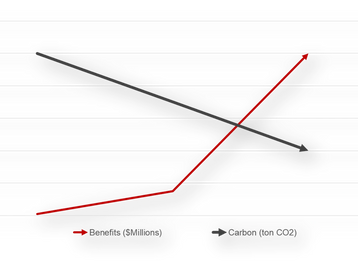Electric Vehicles
OFF THE PUMP AND OFF THE GRID
When properly implemented, EV infrastructure provides an invaluable tool for renewable integration, local grid resilience, and carbon reduction without immobilizing vehicles for more than 3 minutes. Since 2013, EPSIM has developed financial and simulation models to demonstrate that battery-swapping EVs are critical to supporting microgrids, urban electric grids, islands, and private properties. In 2020, EPSIM developed its first EV with battery swapping to demonstrate fast refueling.
The Electric Vehicle / Renewable Generation Nexus
Electric vehicles (EVs) can unlock significant amounts of grid capacity to better integrate intermittent generation. Since 2012, EPSIM has studied the success and failure of EVs participation in Demand Response, fast refuel, renewable integration. EPSIM then developed a business model articulated around a battery swapping mechanism (patent pending) to facilitate the rapid deployment of EVs with significant benefits to all stakeholders.

Electric Utilities
Electric utilities face the issue to integrate large amounts of intermittent renewable generation, using the grid for storage. If energy were compared to a liquid, capacity would be a bottle. Today's regulations are akin to forcing utilities to drink by licking a soaked carpet.
EPSIM's business model provides energy storage on a cost-sharing basis, allowing utilities to integrate renewables and re-dispatching the clean generation on a firm basis.
Battery Industry
The battery industry is key to storing electric energy. Yet the technology development is hindered by long-term captive markets, and progress is slowed by the pace of strategic investments from a few corporations.
EPSIM's business model opens the battery market by promoting a simple set of EV standards for battery interchangeability. Furthermore EPSIM's model shows batteries as a service, benefiting utilities, communities and EV owners alike.

Communities
Imagine an economic stimulation from new stakeholders in the EV business, stakeholders that do not exist yet, such as privately-owned battery swapping stations, and communities leasing batteries as a service. Envision a more resilient electric grid with neighborhood "power plants" wherever EVs swap batteries. Islands and remote communities, picture dramatic reductions in fuel imports, without compromising resiliency.
EPSIM Corporation's EV business model, battery swapping design and standards are protected by patent pending
